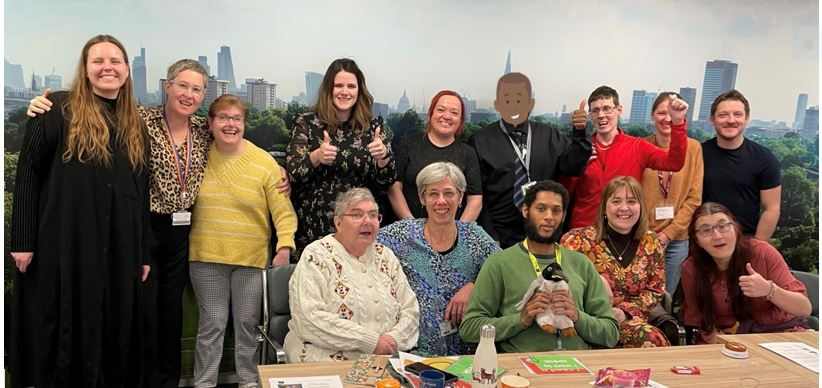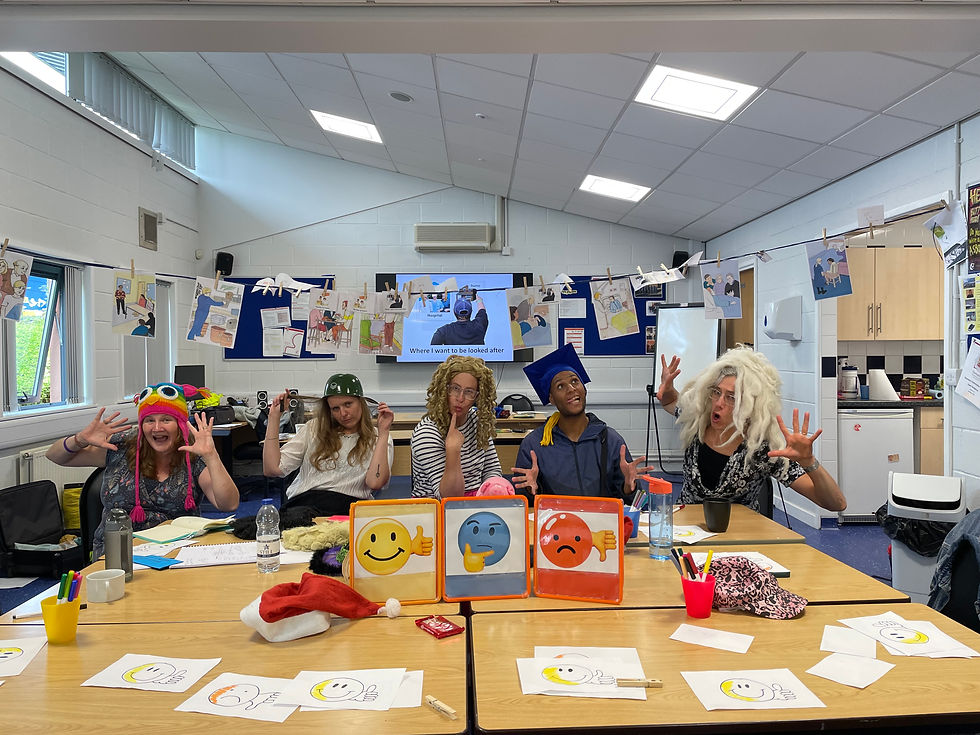Written by Andrea Bruun, Research Associate, Kingston University.
On 15th of August 2022, I had my first day as a Research Associate on The Victoria and Stuart Project at Kingston University. That is almost two years ago and what a couple of years it has been! The toolkit is live, and the project is coming to an end. Let me share three things I have learnt throughout the project.
But before I do that, I think some background information may be helpful. 15th of August 2022 was the day after I sent a full draft of my thesis to my supervisors at UCL. I was actually still in the process of finishing my PhD when I joined the team. So, as you can tell, I was really a brand-new early career researcher. I had done lots of research within palliative care during my PhD studies; my PhD was in prognostication in hospice multidisciplinary teams, and I was surrounded by palliative care researchers at the UCL Marie Curie Palliative Care Research Department. But I had never worked in the learning disability field before. Now you have a better idea about the type of Research Associate who entered the Kingston University doors back in 2022.
Co-production is the way forward
The greatest thing I have learnt from this project is how important it is to include people in your research. The Victoria and Stuart Project is based on co-production values at every single step of the research process from its study design to data collection and analysis to research dissemination. It might be obvious that it is important to involve people whom your research involves, but here it has not only been important but crucial and essential. The Patient and Public Involvement I had tried and known earlier is nothing compared to this project and the effort and work clearly pays off. We have developed something that has a chance in real practice. It feels like you are making a proper change with your research. The fact that people have asked about the resources ever since we began working on them means we must have done something right.

Let’s keep talking about death and dying
I should start this section with saying that my greatest fear in life is to die. It has been my greatest fear before I started working in the palliative care research field. I am still not entirely sure how I ended up working with death and dying and why I continue to do so – and why I want to keep doing so in the future. I got used to talking about death and dying during my PhD and even more through this project. But The Victoria and Stuart Project also showed me how conversations about death and dying can be so much more.
These conversations are often more about life and how we miss people who have died. One of the biggest things I have learnt is to keep talking about death and dying. Try not to be afraid and be worried about upsetting people. Give people the space to talk and just listen and be present. If people get upset, then that is natural, and we can deal with it. It has been so helpful to remember that people do not sit and cry about something for ever. The tears will dry. It will pass. It has been beautiful to see and hear people using our funeral planning resources and how wonderful these conversations are. There is so much more to talking about death and dying than tears and sadness. It is so important that we continue talking about it.
Think outside the box

In my second week of working on the project, we left London to do a focus group with people with learning disabilities. As you may know, we do these focus groups a bit differently. So that means that on my third day on the job, I was wearing wigs and dancing around with both my colleagues and focus groups participants. Definitely something outside my comfort zone.
In this project, things constantly needed to be tweaked and changed. I once heard a professor say that to get a PhD you do not need to be smart, you just need to be structured. This resonated with me as I see myself as (somehow) structured when it comes to work. But The Victoria and Stuart Project has really challenged me when it comes to structure and planning. I had to learn to loosen up a bit and stay with the chaos of not knowing. We had to be so flexible, and I realised that my familiar structure and planning did not make sense in this kind of co-produced non-linear research. I often had to think outside the box and change all the plans I had just made. Now when I am writing this blog, I think this lesson will follow me throughout my academic career. In a way, I want to keep working in a place where we do things differently and think outside the box – and have fun with wigs!
The project is coming to an end, which also means that this is my last blog for the project. It has been so busy, I have learnt so so much, met some wonderful people, and achieved some pretty cool things. I am very proud of the project and all of us. I will now breathe and enjoy the summer before we wrap up the project at a conference in Chicago (how lucky can one be?!).






Comments